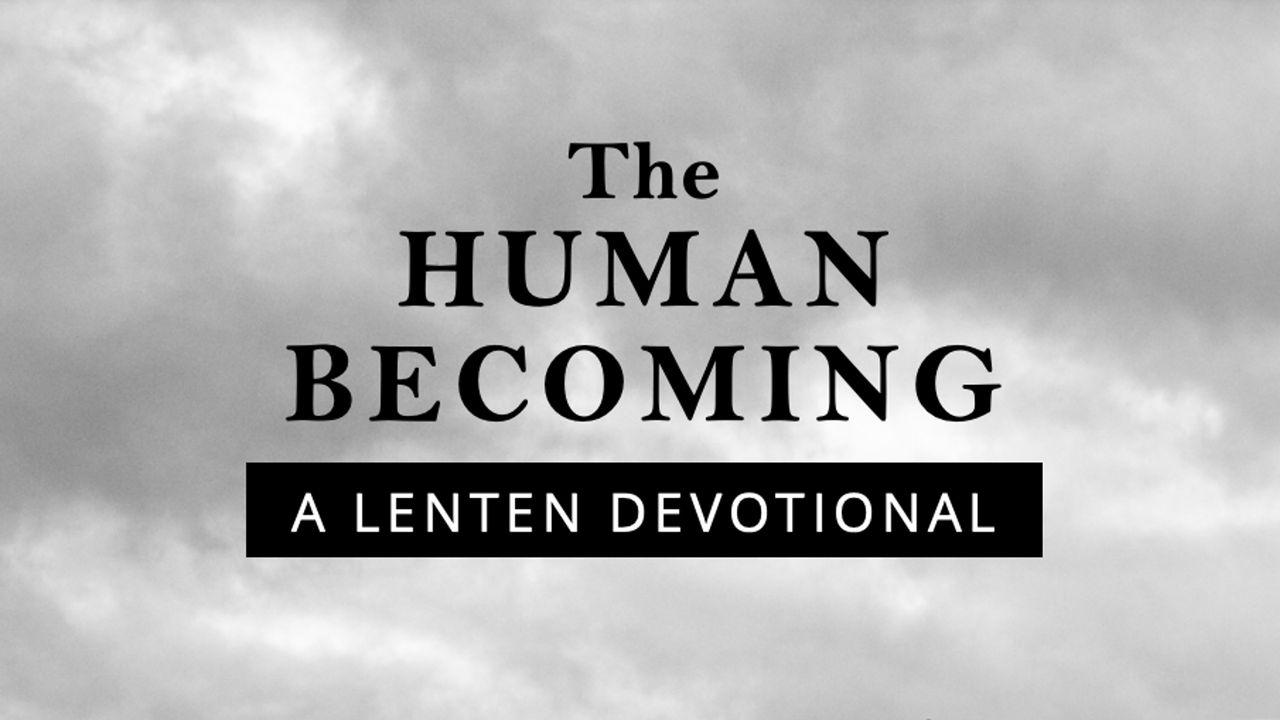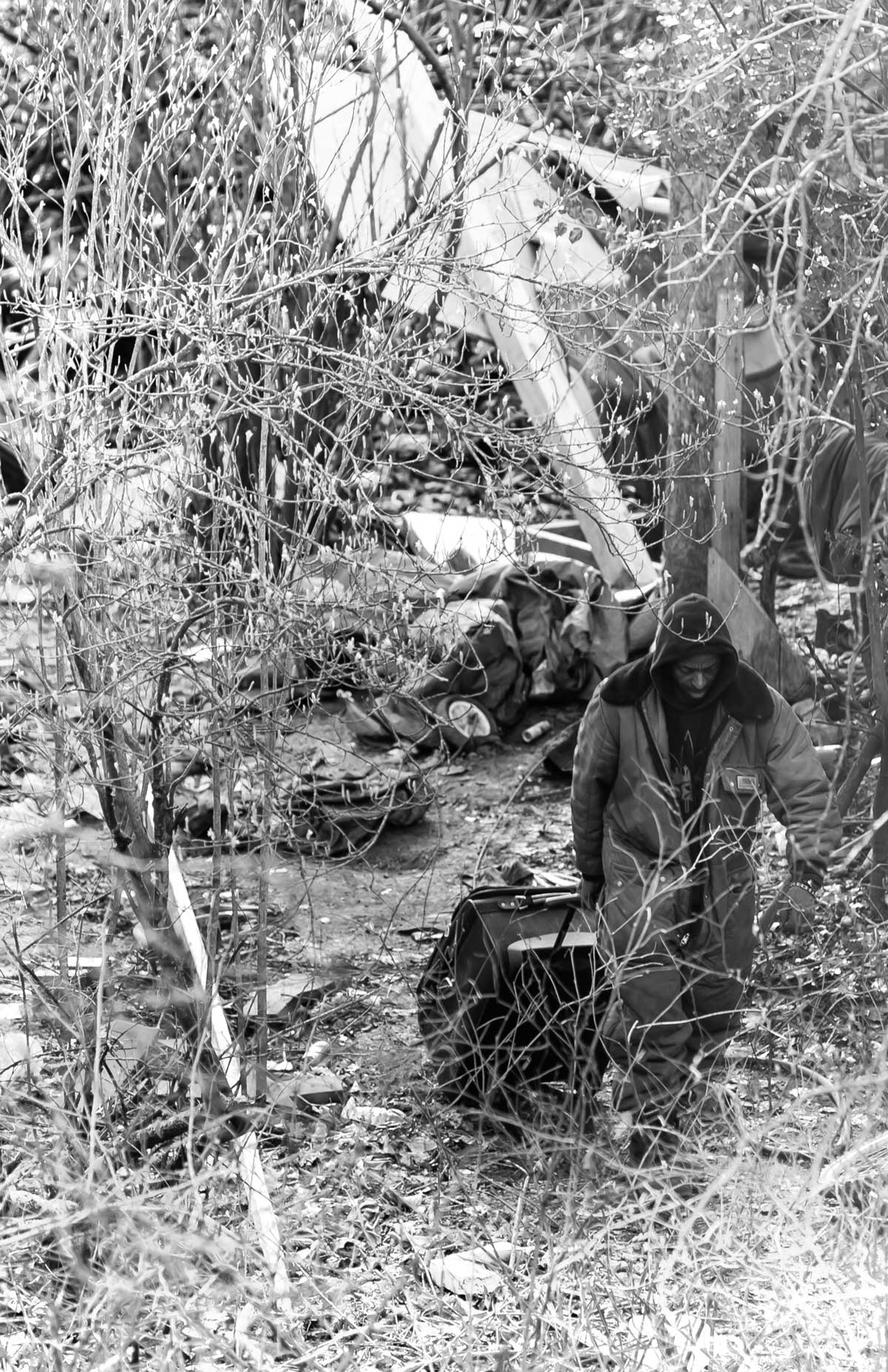The Human Becoming: A Lenten DevotionalSample


Holy Week: Tuesday | Pain | Rev. Katie Guertin-Anderson
In today’s text, we reach the culmination of Jesus’ public ministry and witness him turn towards Jerusalem, and consequently, the cross. At this point, in what feels like a particularly long Lenten journey, I find myself wondering: am I ready for what happens next in the story? Am I ready to watch Jesus go through this all over again? Am I ready to face the cross and greet the burdens that inevitably arise in my own body and spirit?
As we trudge through Holy Week, I’m curious about what Jesus is trying to tell us in this rambling discourse full of paradoxes, confusing metaphors, and complex theology. I’m wondering if his message is simpler than it appears to be. This strenuous sermon is a clear and direct response to the Greeks’ request to Philip: “Sir, we want to see Jesus.”
To “see” Jesus at this point in the story is to recognize what is about to happen to him. Yes, God will glorify him. Yes, his death will serve the purpose of “bearing much fruit.” And yes, through the cross “the Human One will be lifted up.” However, we are not there yet. Jesus doesn’t get to skip what happens first, and neither do we. This is one of those sacred moments in scripture when we glimpse Jesus’ unmistakable humanness. He accepts his fate, but he is also “deeply troubled” by it. I can almost picture him—eyes puffy, voice raised yet cracking with anguish, hands thrown up in bewilderment:“What should I say? ‘Father, save me from this time’? No, for this reason, I have come to this time. Father, glorify your name!”
I spent many years working as a hospital chaplain. I accompanied children, parents, siblings, lovers, soulmates, and friends through the most harrowing of times: illnesses, suffering, tragedy, grief, loss, and death. I remember clearly my first few months as a chaplain. I was afraid more than anything else. It wasn’t the blood or the wounds or the strange hospital equipment that tensed my muscles and quickened my breath. It was seeing people who were in pain and desperately trying to avoid my own. It was choosing to walk into a room that I knew held more suffering than I thought I could bear, and making myself look and not turn away.
To see Jesus is to tell the truth about human pain and suffering. To see him turning toward the cross is to come face-to-face with both a human who is in deep distress and with the human violence, power, and sin that brought him there. To see Jesus is also to turn inward and ask:Here, in this story, where do I see myself? Am I the crucified? Or, am I the crucifier? Can I bear to look and tell the truth about what I see?
There have been many a Holy Week when I refused to look. I felt too broken, too ashamed in my own human mess to look at another’s suffering, let alone consider the “crucified” in the world today. Some years I just cannot bear confronting my own pain. But, as the poet Khalil Gibran reminds us:
Your pain is the breaking of the shell that encloses your understanding.
Even as the stone of the fruit must break, that its heart may stand in the sun, so must you know pain.
So, this year I’m going to look. I am going to answer Jesus’ invitation to see him and to see the cross for what it really is: the truth of human cruelty and violence, and my own capacity for both. I am a human who is still becoming, a work in progress that is both broken and beautiful before God; a human who wrestles with violence and tenderness, humility and the desire for power, prestige, and control over others; a human who has sometimes been the crucified but is more often a participant in the system that crucifies.
Will you join me in looking toward the cross today? Will you plant your feet with me, take a deep breath with me, and resolve not to turn away? For Jesus promises that if we see him, we will be lifted and drawn into his embrace, and thus finally able to stand in the sun.
Reflection
Is there a word or phrase that stands out to you? What is it calling forth?
Discussion
In what contexts have you witnessed the pain and suffering of others? Did that move you to explore your own pain and suffering? What did you find?
Public Action
Pay attention to your body when you witness someone in pain. Do you avert your eyes or turn away, pretending not to see? Try being still in your discomfort. What does witnessing another’s pain bring up in your own life?
Scripture
About this Plan

The Lenten journey is a counterintuitive journey to life by way of the cross. Each year at this time we are invited to turn and face those things from which we would rather run and hide. We walk to the cross where we experience the great unveiling and see things as they really are. We see God for who God is, and we discover ourselves for who we are.
More
Related plans

30 Powerful Prayers for Your Child Every Day This School Year

Rebuilt Faith

Legacy Lessons W/Vance K. Jackson

God's Book: An Honest Look at the Bible's Toughest Topics

Sharing Your Faith in the Workplace

Protocols, Postures and Power of Thanksgiving

24 Days to Reflect on God's Heart for Redemption

Awakening Faith: Hope From the Global Church

Game Changers: Devotions for Families Who Play Different (Age 8-12)
